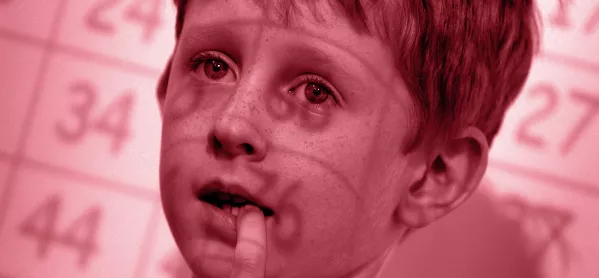Some 62 per cent of primary schools hold mock key stage 1 Sats for six- and seven-year-olds, a new survey by Tes, with the NEU teaching union, suggests.
In the poll, 30 per cent of teachers said that their schools asked Year 2 children to revise for Sats at home, and one in five schools have been sending their Year 2 pupils home with practice Sats papers.
“I live in fear of being moved to Year 2, as I disagree with the way Sats have taken over and completely ruined Year 2,” one teacher said in response to the survey.
More than 650,000 Year 2 children will sit the tests in maths and reading at some point next month. There is also a non-statutory test in spelling, punctuation and grammar.
The test results themselves are not reported, but they are used to feed into the statutory teacher assessments of children’s reading and maths.
But since a new, tougher national curriculum was introduced in 2014, with a corresponding rise in the demands of the tests, which are still externally set, teachers say the pressure has increased noticeably.
“Children are becoming numbers, and teachers are talking to six- and seven-year-olds about test technique rather than a love of learning,” one teacher responding to the latest Tes/NEU survey said.
Another said: “I know my mental health is suffering and I need to choose to leave Year 2 or stop caring - neither of which I want to do.”
Sats ‘damaging primary education’
In the survey, three-quarters of teachers said that the curriculum was squeezed in Year 2 in preparation for Sats.
Mary Bousted, joint general secretary of the NEU, said: “Sats, whether at Year 2 or Year 6, are damaging to primary education.
“The government relentlessly tests children from the age of 6, and they are told they are failures if they do not meet required standards. This can impact on their self-esteem, which can carry on throughout their schooling and determine the direction of their adult lives.
“We believe there are better ways of assessing children, and better ways of ensuring school accountability.”
A Department for Education spokesperson said: “The assessments in Year 2 are designed to help teachers understand pupils’ understanding of basic maths and English and to give a baseline against which to measure their progress.
“There is no need for schools to encourage pupils to revise or do practice papers at home. We know most teachers administer tests in a way that does not put undue pressure on pupils at any level.
“These assessments are a fundamental part of children’s education but they have no long-term effect for children. As such, they should absolutely not be made to feel any stress or anxiety over them.”
This is an edited article from the 27 April edition of Tes. Subscribers can read the full article here. To subscribe, click here. This week’s Tes magazine is available in all good newsagents. To download the digital edition, Android users can click here and iOS users can click here




